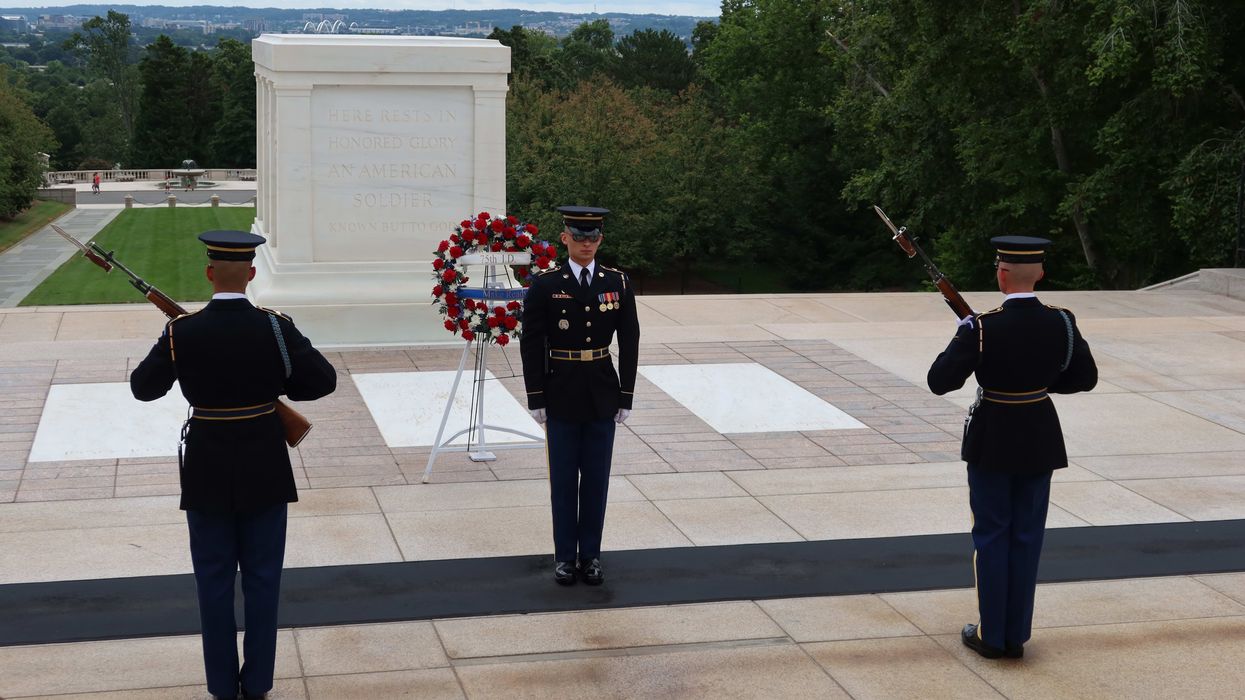This Monday, as we prepare to celebrate Memorial Day Weekend, let's remember the true significance of this holiday beyond grilling and rooftop parties. Memorial Day is a time to honor and thank those who fought to protect the freedom and beauty of our nation. It is a time to reflect on the sacrifices made by our fallen soldiers and to also support our living veterans.
The Department of Veterans Affairs reports that approximately 20 veterans commit suicide each day in the United States. Veterans are disproportionately affected by the opioid epidemic, with the death rate from opioids among VA healthcare nearly double the national average.
Shockingly, veterans who served in Iraq and Afghanistan are twice as likely to die from an overdose of prescription painkillers compared to the rest of the country.
It is imperative that we make the care of our troops when they return home a national priority. This Memorial Day, veterans and advocates from all corners of the country will gather in our nation's capital not only to pay tribute to those who made the ultimate sacrifice but also to continue advocating for veterans' access to medical cannabis.
The Veterans Cannabis Project, is one such group committed to lobbying for easier access to medical cannabis and combating the stigma surrounding it and fighting to declassify marijuana from the list of Schedule I controlled substances, which currently restricts federal research and prevents doctors at the Department of Veterans Affairs from recommending or prescribing it.
The connection between post-traumatic stress disorder (PTSD) and suicide is particularly significant in the veteran community. Due to the lack of alternative treatments, VA doctors are often limited to prescribing opioids as the only legal remedy. Consequently, a disproportionate number of veterans struggle with opioid addiction.
Studies have shown that cannabis can be beneficial in treating a wide range of disorders commonly faced by veterans, including PTSD and chronic pain. States that have legalized medical cannabis have witnessed a nearly 25 percent lower mean annual opioid overdose death rate compared to states that have not.
The federal government has the power to reclassify cannabis, currently classified as an FDA Schedule I drug. Several bills in Congress are aimed at granting Veteran Affairs clinics and hospitals more freedom to prescribe medical cannabis in states where it is legal. For instance, House Bill 2191,, would ensure that veterans' benefits are not denied based on their use of medical cannabis in states where it is legal. The Veterans Medical Marijuana Safe Harbor Act aims to authorize veterans to use, possess, or transport medical marijuana, and discuss its use with a physician from the Department of Veterans Affairs, as permitted by state laws.
By passing such legislation, VA doctors in states with legalized medical cannabis would have the option to prescribe it to veterans, offering a potential solution to the nation's opioid epidemic. Additionally, these bills would allocate $15 million to study the effectiveness of marijuana in treating chronic pain in veterans and its potential to reduce opioid abuse.
Research published by the American Journal of Public Health suggests that access to cannabis is associated with an 11 percent reduction in the suicide rate among males aged 20 to 29 and a 10 percent reduction among men aged 30 to 39. Another study demonstrates a 25 percent decrease in deaths from opioid overdoses in states where cannabis is legally accessible.
This Memorial Day, let us stand up for the courageous individuals who risked their lives for our freedom to enjoy this long weekend. Many of them are unable to do the same due to pain or PTSD. By advocating for their access to safe and effective medicine, we can show our deep appreciation for their service.











